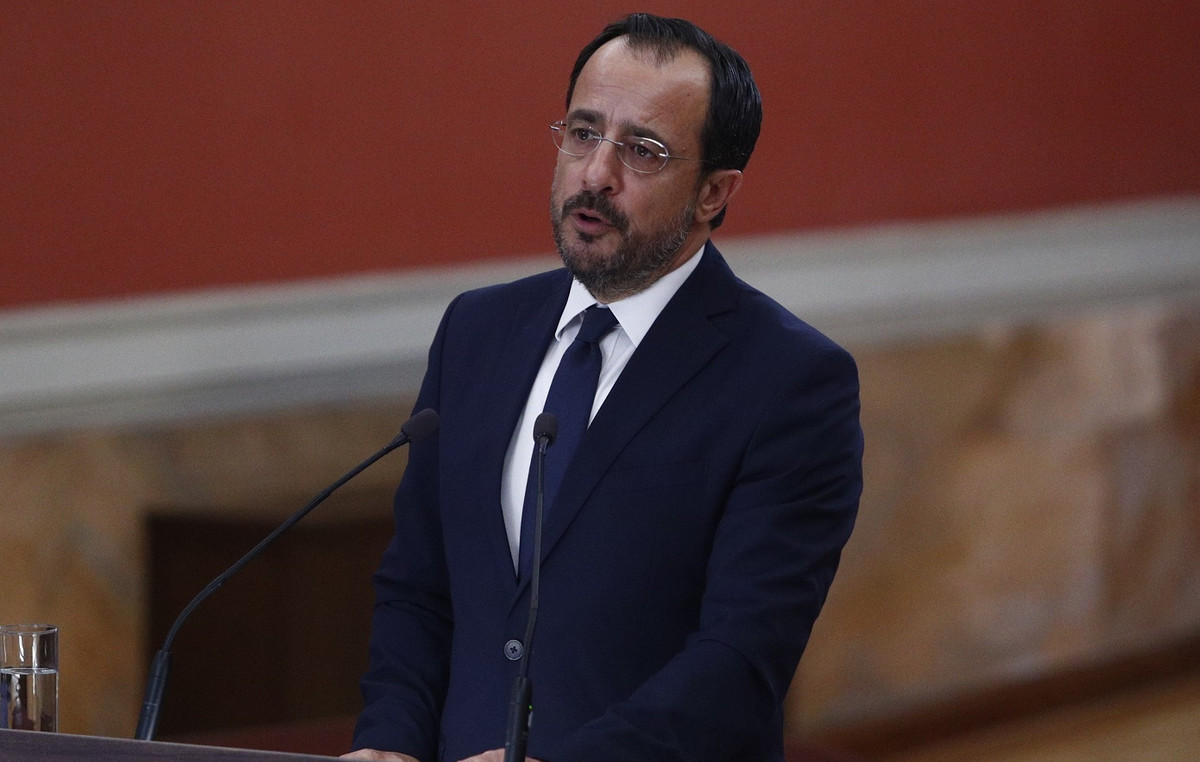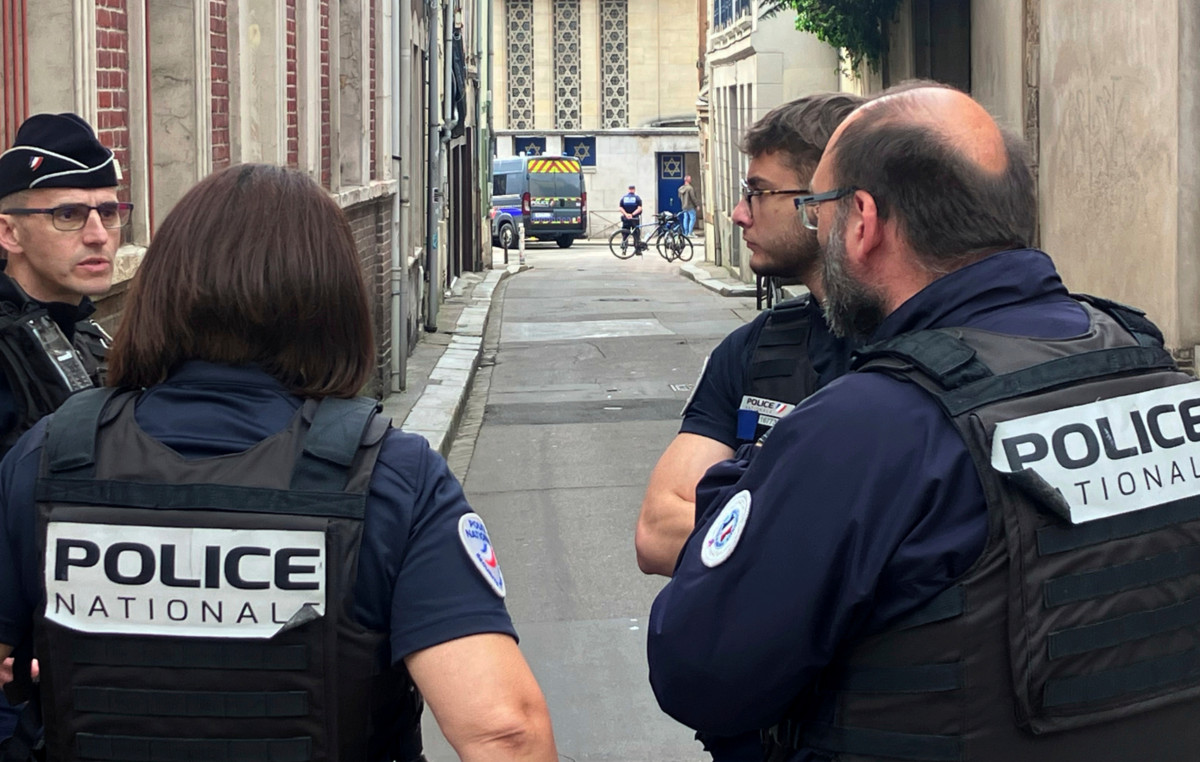The assassination attempt on Donald Trump, which opens a dark new chapter in the United States’ cursed history of political violence, has shaken an already deeply divided nation during one of the most tense periods in its modern history.
Targeting a former president at a campaign rally, just days before he is set to accept the Republican nomination, is by definition an attack on democracy and the right of every American to choose their leaders.
The presumptive Republican Party nominee was on stage, with supporters as usual behind him, in the stands holding signs and wearing their MAGA (Make America Great Again) attire, when the shots rang out.
He cringed, then grabbed the side of his face and disappeared behind his pulpit as people began to scream and the surreal nature of what was happening began to sink in.
The former president later said he felt a bullet tear the skin of his ear, which bled as he was rushed from the venue. Shots fired by a gunman on a rooftop outside the perimeter of his Butler, Pennsylvania, rally narrowly avoided causing much more damage.
A photo by Evan Vucci of the Associated Press of a defiant but alive Donald Trump — with blood on his ear and cheek, being led offstage by Secret Service agents, his fist raised and an American flag in the background — became instantly iconic.
The image will define a tense political era, regardless of the as-yet-unknown political consequences of a sunny afternoon that turned into a nightmare.
Video – Watch the moment Trump is removed from rally
Horrible associations
The sound of gunshots and the sight of a political leader falling to the ground – with Secret Service agents rushing to throw themselves on top of him to protect him – triggered serious historical traumas.
Although Trump is not currently serving as president, his injury highlights the ever-present threat that looms over the office and those who run for it — especially those who claim it.
President Joe Biden is the 46th president — and four of his predecessors were killed while in office, most recently John F. Kennedy in 1963.
The fact that Trump was attacked ends a 40-year period in which many thought the Secret Service’s expertise had significantly reduced the potential for such attacks — and it will cast a shadow that will last for years.
Trump being targeted during a presidential campaign has drawn comparisons to the assassination of Democratic candidate Robert F. Kennedy in 1968, a bloody year that also saw the death of civil rights leader Martin Luther King Jr. and violence at the Democratic National Convention in Chicago — the city that will host the same event this year.
But political violence has not stopped since then. In 2011, then-Representative Gabrielle Giffords, a Democrat from Arizona, suffered brain damage after being shot in the head at an event where six people were killed.
In 2017, a gunman opened fire at a Republican congressional baseball practice, shooting then-House Majority Leader Steve Scalise and three others. The nation is still processing the attack on the U.S. Capitol by Trump supporters on Jan. 6, 2021.
A Trump supporter at the rally, Joseph Meyn, saw the former president fall and noticed, out of the corner of his eye, the man who was killed being struck. With remarkable eloquence, given the shock of what he saw, he told the CNN that the attack was a symptom of a country consumed by political fury.
“Everybody seems to be very angry. It seems like there are a lot of angry people out there. I’m not shocked that this happened. I’m shocked that I was sitting there and it happened right next to me,” he said.
“It’s just horrible. We shouldn’t be at a level of political discourse in this country where this is going to happen.”
“JFK (John F. Kennedy), RFK (Robert F. Kennedy), MLK (Martin Luther King)… there was an attempt on the life of [Ronald] Reagan and now an assassination attempt on Trump. It’s ridiculous. Politics shouldn’t be a zero-sum game where someone wins everything and loses everything.”
Another surprising turn of events in the elections
Saturday’s shocking developments (13) added another volatile political element to a wild and unpredictable election year that has recently seen Biden – the oldest president in history – fighting to save his nomination after a disastrous debate performance and the conviction of Trump, 78, by a New York jury and his promises to fight for a second term of “retribution” if re-elected.
The only appropriate initial reaction to the horror was relief that a presidential candidate is still alive and mourning for the Trump supporter who was killed while exercising his democratic freedoms at the rally.
Most leaders and political actors on both sides quickly sent prayers to Trump and called for calm.
Biden, who has spent days trying to shore up his campaign, stepped into his role as the nation’s chief executive after learning of the shooting while attending Mass in Rehoboth Beach, Delaware. He released a written statement and later addressed the nation via video.
“There is no place in America for this kind of violence — it’s sickening, it’s sickening, it’s one of the reasons we need to bring this country together. We can’t let this happen. We can’t be like this. We can’t condone this,” Biden said.
He also said he tried to call “Donald” and claimed the former president was at a rally that “should have been conducted peacefully without any problems.” The president, who later managed to speak to his predecessor, ended his weekend early at his beach house and returned to Washington.
Given the fiercely polarized state of politics in the United States, the initial shock of the assassination attempt will inevitably have serious political ramifications.
Trump was already seen as an invincible hero by his supporters and treated with almost supernatural reverence at his rallies. His image as a fighter who is constantly under attack from his enemies will now be even more deeply ingrained.
In a moment of self-control after being shot, the former president made sure to create an iconic moment of defiance — raising his fist and shouting “fight, fight” to his crowd — while looking directly at the stand where the television cameras were.
The images will go down in history and enrich Trump’s mythology as surely as his mugshot from the Atlanta jail and the footage of his return to the White House in 2020 after overcoming a serious Covid-19 infection.
There could also be unforeseen implications for an election campaign in which Trump was leading Biden — even before the president’s campaign went into freefall with his disastrous debate performance. And the atmosphere surrounding the Republican National Convention in Milwaukee this week will be even more intense.
Already on Saturday, there were calls for investigations into how a gunman — outside the rally’s security perimeter — managed to get Trump in his sights in a massive security failure that will reverberate for months and have implications for all future presidential and campaign events.
Many politicians on both sides of the aisle are already lamenting the heat of political rhetoric, after yet another frightening indication of what it can produce in a nation where guns are so readily available.
It remains to be seen whether the shock of Saturday’s events, which could have been much worse, will do anything to tame a toxic political culture in which Trump is an enthusiastic participant.
In one of the most moving reactions, Giffords said in a statement: “Political violence is terrifying. I know.” She added: “I hold former President Trump, and everyone affected by today’s indefensible act of violence, in my heart. Political violence is un-American and is never acceptable — ever.”
Unfortunately, history suggests that violence, while indefensible, is also a quintessential scar on American politics.
Source: CNN Brasil
Bruce Belcher is a seasoned author with over 5 years of experience in world news. He writes for online news websites and provides in-depth analysis on the world stock market. Bruce is known for his insightful perspectives and commitment to keeping the public informed.







